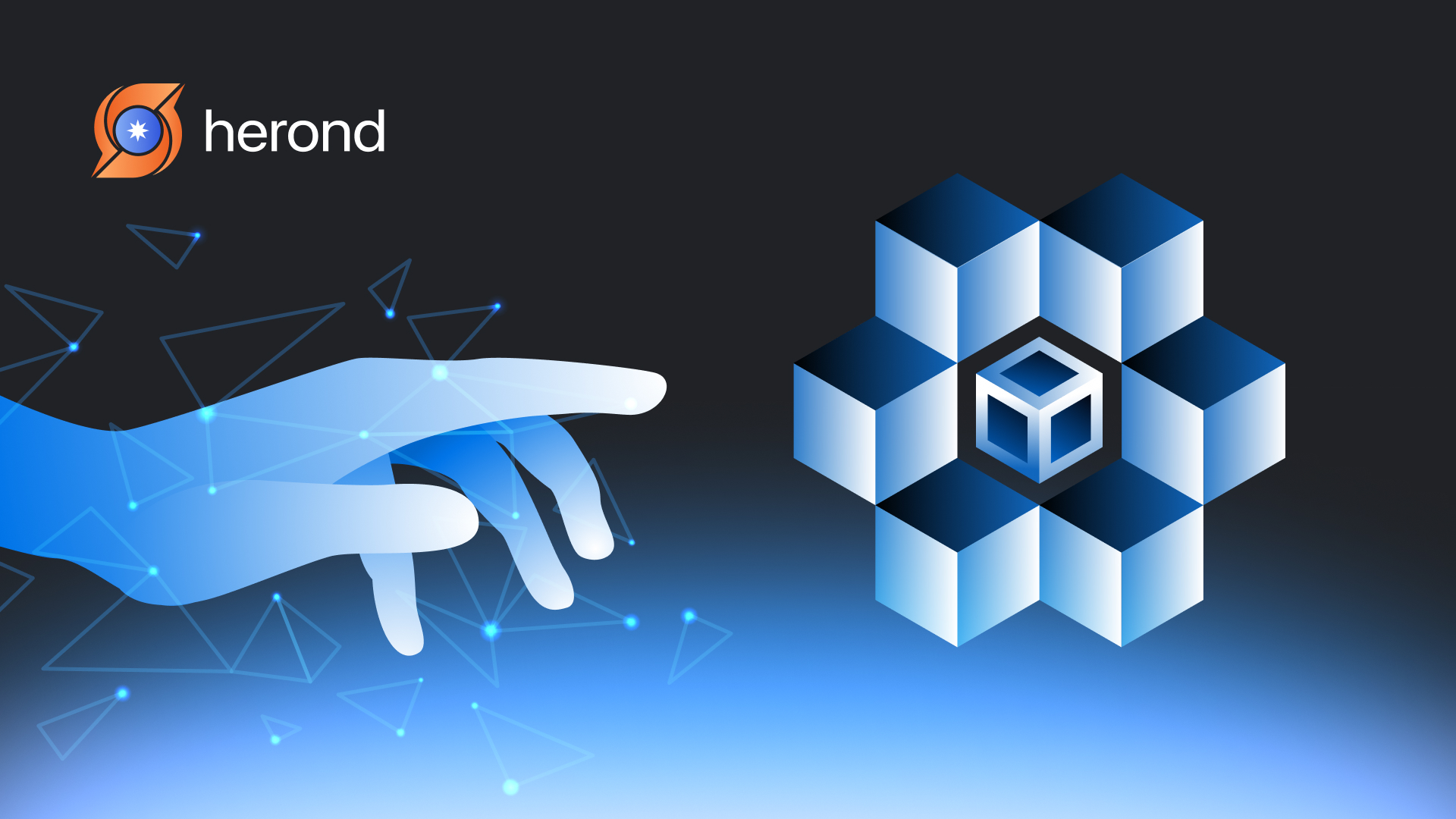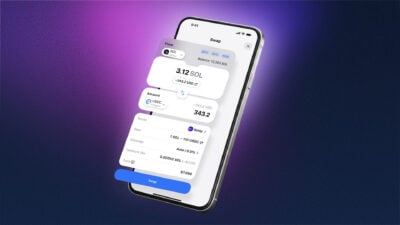When diving into the world of Blockchain Technology, the term “Web3” cannot be missed. In general, Web3 has the potential to reshape the internet and society at large by democratizing access, fostering innovation, and redefining trust and ownership in the digital age.
Moreover, it is important to note that Web3 does not only impact one well-known area called DeFi, but also various industries.
This article aims to discuss in detail the potential influences of Web3 across different industries including gaming, banking, entertainment, etc.
What is Web3?
Web3 refers to the vision of a decentralized and interconnected internet built on blockchain technology. It represents the next evolution of the web, moving beyond the current centralized model dominated by tech giants and intermediaries towards a more open, transparent, and user-centric ecosystem.

The term “Web3” originated from the concept of Web 2.0, which introduced user-generated content, social media, and interactive web applications. Web3 builds upon these principles by leveraging blockchain technology, decentralized protocols, and cryptographic principles to create a more secure internet.
Impacts of Web3 across Various Industries
Compared to the past, every industry has gradually been digitized greatly, improving the efficiency of every product and service. Especially, with the help of Web3, every service is utilized and growing everyday. Consequently, it improves people’s lives.
Here are some potential examples of impacts of Web3 on multiple industries.
Real Estate

- Tokenization of Assets: Web3 enables the tokenization of real estate assets, allowing properties to be divided into digital tokens that represent fractional ownership. This opens up new investment opportunities for a wider range of investors, including retail investors who may not have the capital to purchase entire properties.
- Increased Liquidity: By tokenizing real estate assets, investors can buy and sell real estate tokens on blockchain-based platforms, reducing the barriers to entry and exit.
- Decentralized Property Management: Web3 enables decentralized property management solutions where property owners and tenants can interact directly through blockchain-based platforms. For more detail, smart contracts automate rental agreements, maintenance requests, and payments, streamlining property management processes.
E-commerce

- Decentralized Marketplaces: Web3 enables the creation of decentralized e-commerce marketplaces without intermediaries, allowing buyers and sellers to transact directly with each other. These increase transparency, reduce fees, and eliminate the risk of platform manipulation or censorship.
- Tokenization of Products: Web3 facilitates the tokenization of physical and digital products. Tokenization enables fractional ownership, peer-to-peer trading, and enhanced liquidity for e-commerce goods and services.
- Token-Based Incentive Mechanisms: Web3 introduces token-based incentive mechanisms such as loyalty rewards, referral programs, and affiliate marketing campaigns in e-commerce platforms. Tokens can be used to incentivize user engagement, promote brand loyalty, and drive customer acquisition and retention efforts.
Healthcare

- Secure and Interoperable Health Records: Web3 enables the creation of secure and interoperable health record systems built on blockchain technology. Patient health records stored on the blockchain are encrypted, immutable, and can be accessed securely by authorized healthcare providers. Moreover, interoperable health record systems allow for seamless sharing of patient data across different healthcare providers and systems, improving care coordination and patient outcomes.
- Medical Supply Chain Management: Web3 can improve the transparency and efficiency of medical supply chain management by leveraging blockchain technology to track and trace pharmaceuticals, medical devices, and other healthcare products. In more detail, blockchain-based supply chain solutions enable real-time visibility into product origins, authenticity, and distribution, reducing the risk of counterfeit products and ensuring patient safety.
- Healthcare Research and Innovation: Web3 facilitates collaboration and innovation in healthcare research by providing secure and transparent platforms for sharing research data, findings, and resources. Consequently, it allows researchers, clinicians, and patients to collaborate on research projects, clinical trials, and precision medicine initiatives, accelerating the pace of medical discovery and innovation.
Government and Public Services

- Transparent Governance: Web3 enables transparent and auditable governance systems through blockchain-based voting and decision-making mechanisms, increasing trust and accountability in government institutions.
- Identity Management: Self-sovereign identity solutions on Web3 platforms can provide citizens with secure and portable digital identities, streamlining access to government services and reducing identity theft and fraud.
Energy and Utilities

- Peer-to-Peer Energy Trading: Web3 enables peer-to-peer energy trading on decentralized energy networks, allowing users to buy and sell excess renewable energy directly to one another without intermediaries.
- Grid Management: Blockchain technology can optimize energy grid management by enabling real-time data sharing, demand response, and automated energy transactions.
Education

- Decentralized Learning Platforms: Web3 enables the development of decentralized learning platforms that facilitate many activities. For example, peer-to-peer interactions, content sharing, and collaboration among students and educators.
- Personalized Learning Experiences: Web3 enables personalized learning experiences. In other words, it provides personalized recommendations, adaptive learning pathways, and targeted interventions.
- Peer-to-Peer Tutoring and Mentoring: Web3 facilitates peer-to-peer tutoring and mentoring networks where students can connect. For instance, connecting with peers, experts, and mentors for academic support, guidance, and mentorship. Smart contracts automate payment mechanisms, ensuring fair compensation for tutoring services.
Gaming

- Player-Driven Economies: Web3 enables the emergence of player-driven economies within games, where players can earn tokens or cryptocurrencies. These tokens can be traded, staked, or used to purchase in-game items, creating new opportunities for player monetization and engagement.
- Blockchain-Based Gaming Mechanics: Web3 introduces new gaming mechanics and features enabled by blockchain technology. For example, provably fair gameplay, verifiable scarcity, and transparent reward systems.
- Crossover Events and Collaborations: Web3 facilitates crossover events and collaborations between games, where characters, items, and events from one game can appear in another. These collaborations create new opportunities for cross-promotion, player engagement, and community building across different gaming communities.
Tourism

- Sustainable Tourism Initiatives: Web3 facilitates the development of blockchain-based solutions for sustainable tourism, including carbon offsetting, eco-friendly accommodations, and community-based tourism projects. Blockchain technology can track and verify sustainable practices, incentivize responsible tourism behavior, and promote environmental conservation efforts.
- Cultural Preservation and Heritage Tourism: Web3 enables the tokenization of cultural assets, landmarks, and heritage sites, allowing travelers to support cultural preservation efforts. Tokenization provides funding for conservation projects, promotes cultural exchange, and enhances the sustainability of heritage tourism initiatives.
Music & Entertainment

- Fan Engagement and Participation: Web3 provides new ways for fans to interact with artists and content. Hereby, fans can support their favorite artists through crowdfunding campaigns, tokenized memberships, and participatory experiences.
- Royalty Payments and Revenue Sharing: Web3 introduces transparent and automated royalty payment systems for artists, producers, and collaborators.
- Immutable Proof of Creation: Web3 provides immutable proof of creation for music and entertainment content recorded on blockchain networks. Timestamping and cryptographic signatures ensure the authenticity and integrity of creative works, providing verifiable proof of ownership and authorship for artists and creators.
Banking & Insurance

- Decentralized Finance (DeFi): Web3 enables the development of decentralized finance (DeFi) platforms built on blockchain technology. These platforms offer a wide range of financial services.
- Decentralized Identity and KYC: Web3 introduces decentralized identity solutions and know-your-customer (KYC) processes for banking and insurance customers.
Conclusion
To sum up, Web3 has the potential to transform industries by democratizing access, promoting transparency, and fostering collaboration in economic and social systems. However, widespread adoption of Web3 technologies will require overcoming regulatory, technical, and cultural barriers, as well as ensuring interoperability, security, and usability in decentralized ecosystems.
About Herond Browser
Herond Browser is a Web browser that prioritizes users’ privacy by blocking ads and cookie trackers, while offering fast browsing speed and low bandwidth consumption. Herond Browser features two built-in key products:
- Herond Shield: an adblock and privacy protection tool;
- Herond Wallet: a multi-chain, non-custodial social wallet.
Herond aims at becoming the ultimate Web 2.5 solution that sets the ground to further accelerate the growth of Web 3.0, heading towards the future of mass adoption.
Join our Community!







